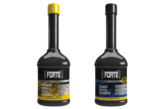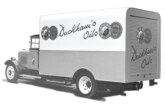
The Verification of Lubricant Specifications (VLS) has introduced more stringent procedures for approving marketing claims on lubricant packaging to ensure end users are protected.
Independent trade body, the Verification of Lubricant Specifications (VLS), has recently introduced tighter new rules for assessing the marketing claims made by lubricant manufacturers on their packaging and technical data sheets. This move comes in response to a number of recent cases, many of which have involved misleading or incorrect claims made on lubricant products.
Since VLS was formed in 2013, its panel of technical experts charged with reviewing each complaint has investigated over 60 cases relating to commercial and passenger vehicle oils, automotive gear oils, and transmission and hydraulic fluids. The majority of complaints received to date have related to marketing claims, including non-compliance with European ACEA specifications, other industry standards and conflicting or unevidenced OEM approvals.
In 2015, VLS introduced a set of guidelines for lubricant marketing claims. At the time, the use of marketing claims within the industry was complex and there was little consistency in the use of these marketing terms. The guidance was designed to bring clarity and promote consistency in marketing claim use, thereby supporting the end user to better understand these terms and what they mean.
In this marketing claim guidance, if a performance claim was made which fell short of a formal OEM approval, VLS would ask for a letter of assurance from the technology provider or additive company whose components made up the finished lubricant. However, a few recent cases have highlighted that these letters do not always provide the level of assurance required to demonstrate that the formulation has been adequately tested and is being fully supported.
VLS has now revised these procedures so that in cases where marketing claims are being queried, the manufacturers or marketers involved must submit the Candidate Data Package containing information about the testing of the additive pack to demonstrate the performance of the formulation being used. Although this does not specifically address the issue of OEM approvals, as very few oils are marketed without ACEA (or API) claims, requesting this document is considered to be the best way of assessing the performance of the product.
Andrew Goddard, Chairman of VLS, said, “At VLS, our mission is to protect and educate end users, and to support fair and open competition in the lubricants market. As space in motor factors and workshops comes under pressure, there is a temptation for lubricant marketers to adopt a ‘one size fits all’ approach, making multiple claims on individual lubricant products. But modern, sophisticated engines require a very specific balance of chemistry to keep them working at their best. Using the wrong oil can cause accelerated wear in gears and bearings, leading to increased maintenance costs and if left unchecked, eventual engine failure. Workshops and mechanics must be able to rely on technical data sheets to confirm that a product has been fully tested and really can deliver what it claims.”








